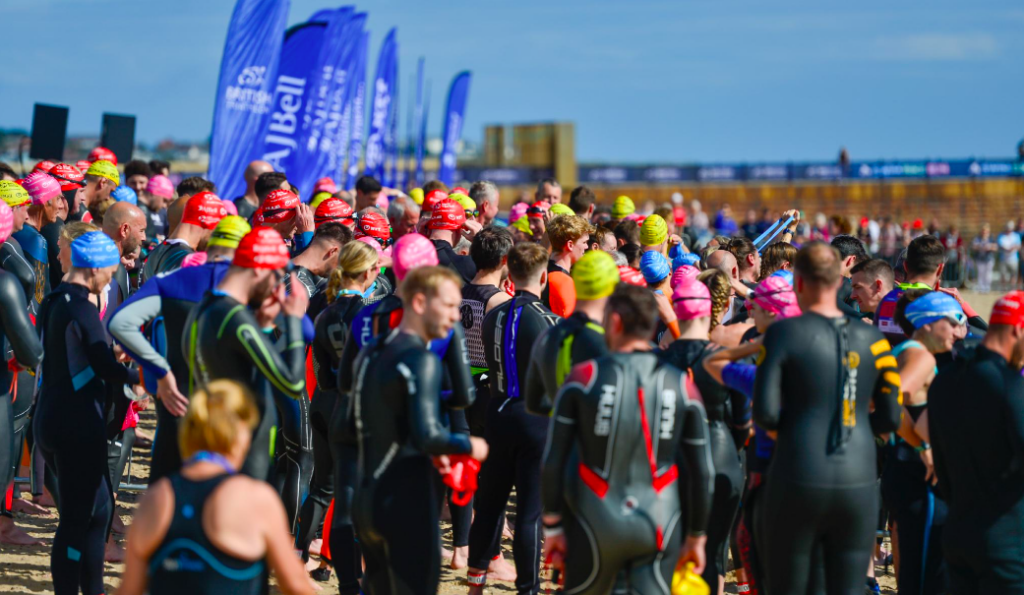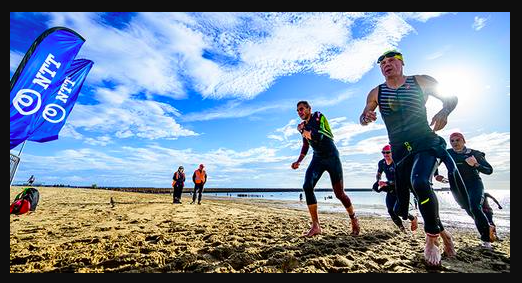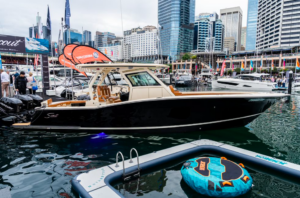57 swimmers downed by diarrhoea after World Triathlon Championship in Sunderland
 British Triathlon Sunderland
British Triathlon Sunderland
At least 50 swimmers have reported suffering from diarrhoea and sickness after competing in sea swimming events at the World Triathlon Championship in Sunderland, health officials have confirmed. At the centre of the ensuing storm is a question about whether the water quality was good enough for the event to go ahead. MIN has long covered the issue of sewage being pumped into UK waters, affecting all who use the coastline. British Triathlon says it followed all guidelines and the water was clean, but an Environment Agency report (published after the event, with water samples from near the event area) shows high levels of E-coli.
According to the Guardian Jacob Birtwhistle, an Australian triathlete, posted on Instagram and said he had felt unwell after the event. He wrote: “Have been feeling pretty rubbish since the race, but I guess that’s what happens when you swim in shit. The swim should have been cancelled.”
One athlete responded: “At least I know what got me and a bunch of other athletes who raced sick and ill.” Another wrote: “That now explains why I spent Monday night with my head in the toilet after racing Sunday morning!”
Birtwhistle seemingly included Environment Agency test results which showed reduced water quality.
Ailith Eve Harley-Roberts who competed in the standard category with a 1,500 metre sea swim, told the paper she had not fallen ill but fellow competitors suffered stomach upsets. She says: “I like to swim outdoors but don’t have any confidence in the cleanliness of seas, rivers, lakes etc because of the dumping of sewage or other effluents.”
British Triathlon says it has communicated with participants regarding the situation and will continue to work with Sunderland City Council and the UK Health Security Agency North East (UKHSA North East) in line with their routine processes to establish further information.
The Environment Agency (EA) tests being widely cited were taken outside of the Roker Pier arms and not in the body of water used for the swim, says British Triathlon. It notes the EA results were published on Monday 31 July following the event. It says that, in line with the World Triathlon guidelines for hosting a World Triathlon Championship Series event, a series of water quality tests were undertaken in the build up to the event including on Thursday 20 July and analysed in a United Kingdom Accreditation Service (UKAS) accredited laboratory. These results were received on Tuesday 25 July and passed the required standard to host the event.

Also in line with World Triathlon guidelines, a further test was conducted during the course of the event on Sunday 30 July and analysed in a UKAS accredited laboratory. Indicative results were received on Wednesday 2 August and passed the required standard to host the event. Both of these tests were taken within the Roker Pier arms where the swim leg of AJ Bell 2023 World Triathlon Championship Series Sunderland took place.
“Whilst the cause of this illness is being investigated by the relevant authorities, anyone who is or who has been feeling unwell is encouraged to view the online resources,” British Triathlon says.
Eva Perrin, science and research officer at campaign group Surfers Against Sewage, told the Guardian: “The sample taken on 26 July showed unprecedented levels of E coli well over what is natural for this water body or safe for human recreational use, and urgently needs to be investigated.”
The event took place on a stretch of coastline which, like many, has been in a long-running battle over sewage discharges.
Northumbrian Water, which runs the overflow in the area, told the Daily Mail that its sewage discharges would not affect Roker each because they were discharged by a long-sea outfall.
“We have had no discharges from any of our assets that might negatively impact water quality at either Roker or the neighbouring Whitburn North bathing water since October 2021.”
The UK Health Security Agency (UKHSA) will be testing samples collected from those affected to determine the cause of illness. Around 2,000 people participated in the event. The high number of participants, and the fact that many ‘regulars’ swim in the water with no ill-affects, has led some online commentators to suggest that the root cause of the illness may be something else entirely.
Images courtesy of British Triathlon, via Facebook.











